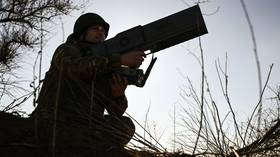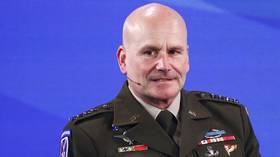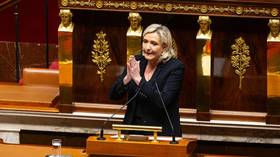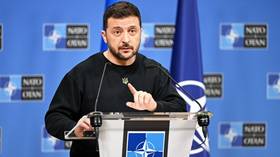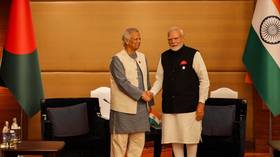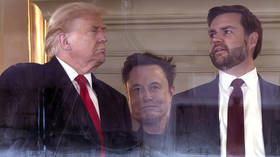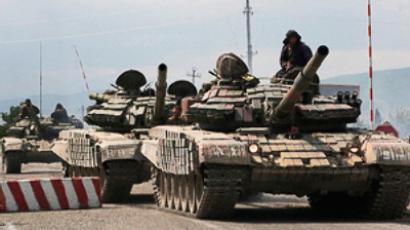Lavrov voices Russia’s stance on European security
Western countries have failed to create a sustainable European security system following the end of the Cold War, and it is time for a change. On Tuesday, Foreign Minister Sergey Lavrov voiced his vision of the issue.
Lavrov brought Moscow’s proposals considering the new European security treaty in Vienna at the OSCE annual security overview conference.
Lavrov noted that the initiative of signing a European security treaty was put forward by Russian President Dmitry Medvedev a year ago, “long before the attack on the sleeping city of Tskhinval was made,” referring to Georgia’s attack on South Ossetia last August.
How does Russia see security in Europe?
Lavrov suggested that the basic principles of developing the arms control system should be thoroughly explained in a future European security treaty.
“Our proposal encompasses the principle of non-aggressive defense, and non-deployment of extra combat forces outside the national territories on a permanent basis,” Lavrov said.
“There must be a clear definition of what all of us understand as ‘considerable combat forces’,” the Russian Foreign Minister noted.
According to Lavrov, the future treaty should “set clear-cut rules that would be applied universally to all critical situations.”
The Foreign Minister also stressed that “the impermissibility of solutions from the position of strength” is a top priority.
“Everybody must be forced to respect the negotiating and peace-keeping formats that parties have agreed on.”
“An absolute condition is the protection of the civilian population in the conflict zones, prevention of its isolation and due attention to its humanitarian and socio-economic needs,” Lavrov said.
Provocations against peace-keepers operating on the basis of the agreed mandate “shall be categorically impermissible.”
Russia believes that “the legal formalization of such principles will allow for preventing the use of double standards.”
The other segment, Lavrov said, should be devoted to the mechanisms of cooperation and resistance to new challenges and threats, including the proliferation of weapons of mass destruction, international terrorism, illegal drugs trafficking and other types of trans-border crimes.
“Russia doesn’t eye to undermine NATO”
During his speech, Lavrov pointed out that “Russia is not trying to dictate anything to anyone”.
“We are inviting everybody to negotiate,” he said. “There are no reasons to be afraid of our ideas, of seeing them as latent traps. It took the crisis in the Caucasus for one and all to develop the awareness that something is wrong in Europe, and that the political obligations all of us assumed on a variety of occasions and in various documents are not enough.”
“Our proposals are not aimed at undermining NATO or any other organization working with security issues. We are calling for better coordination and synergy between existing structures,” he added.
“START and AMD should be discussed together”
Lavrov also reaffirmed that reduction of strategic offensive weapons and missile defense are interrelated. “There is a direct link here,” Lavrov explained.
“Missile defense is part of the entire security agenda, and the plans to set up missile defense bases in Eastern Europe directly affect security of both the entire region in general and Russia in particular, and therefore such things need to be agreed upon beforehand in line with the principles of indivisibility of security,” Lavrov said.
Meanwhile, US State Department spokesman Ian Kelly on Monday said the Obama Administration did not support Russia’s idea of dealing with the issue of missile defense and the further reduction of strategic offensive arms in one package.
Returning to the Caucasus issue, Lavrov described as artificial the linkage of a future European security treaty with last year’s events South Ossetia and Abkhazia.
“Quite a few countries try to put forward demands, suggestions that all decisions to recognize South Ossetia and Abkhazia that were made by the Russian leadership be cancelled. They say that after that they will discuss all the rest. Clearly the linkage is fairly artificial,” Lavrov said before adding: “A likely explanation for this is somebody is reluctant to recognize the truth in public.” Lavrov stressed that, despite this misunderstanding, Russian partners agree on the issue in private talks.




